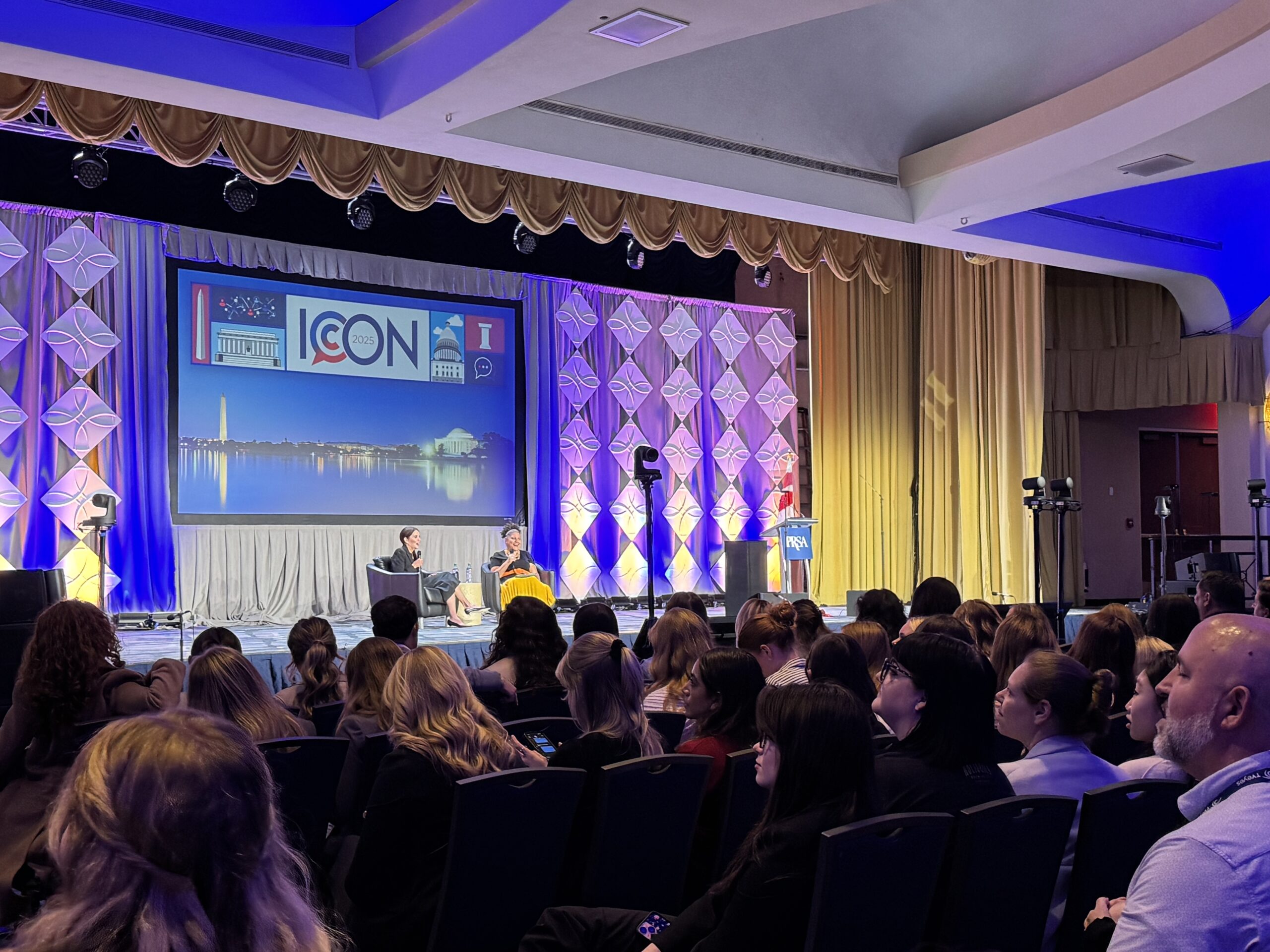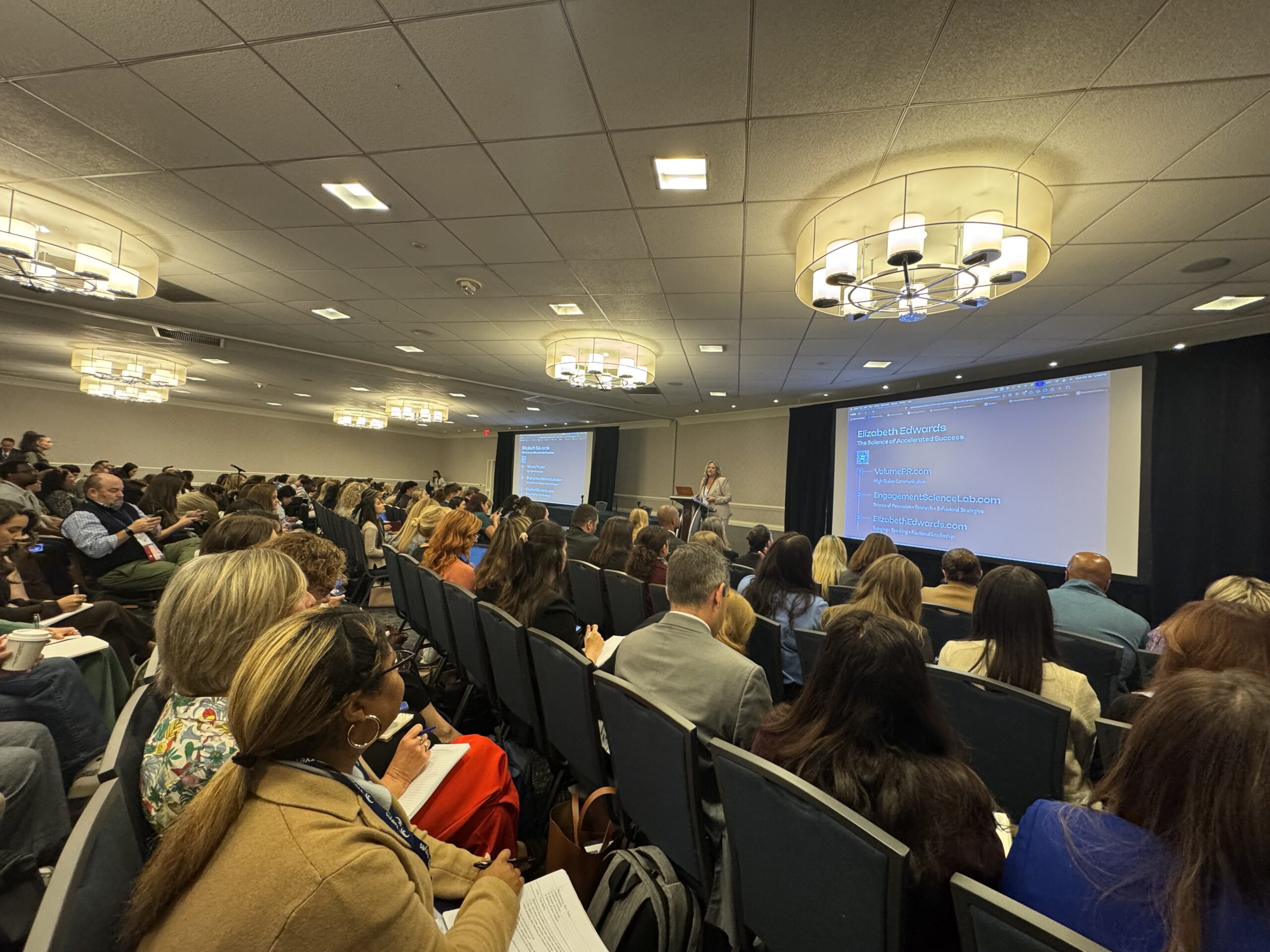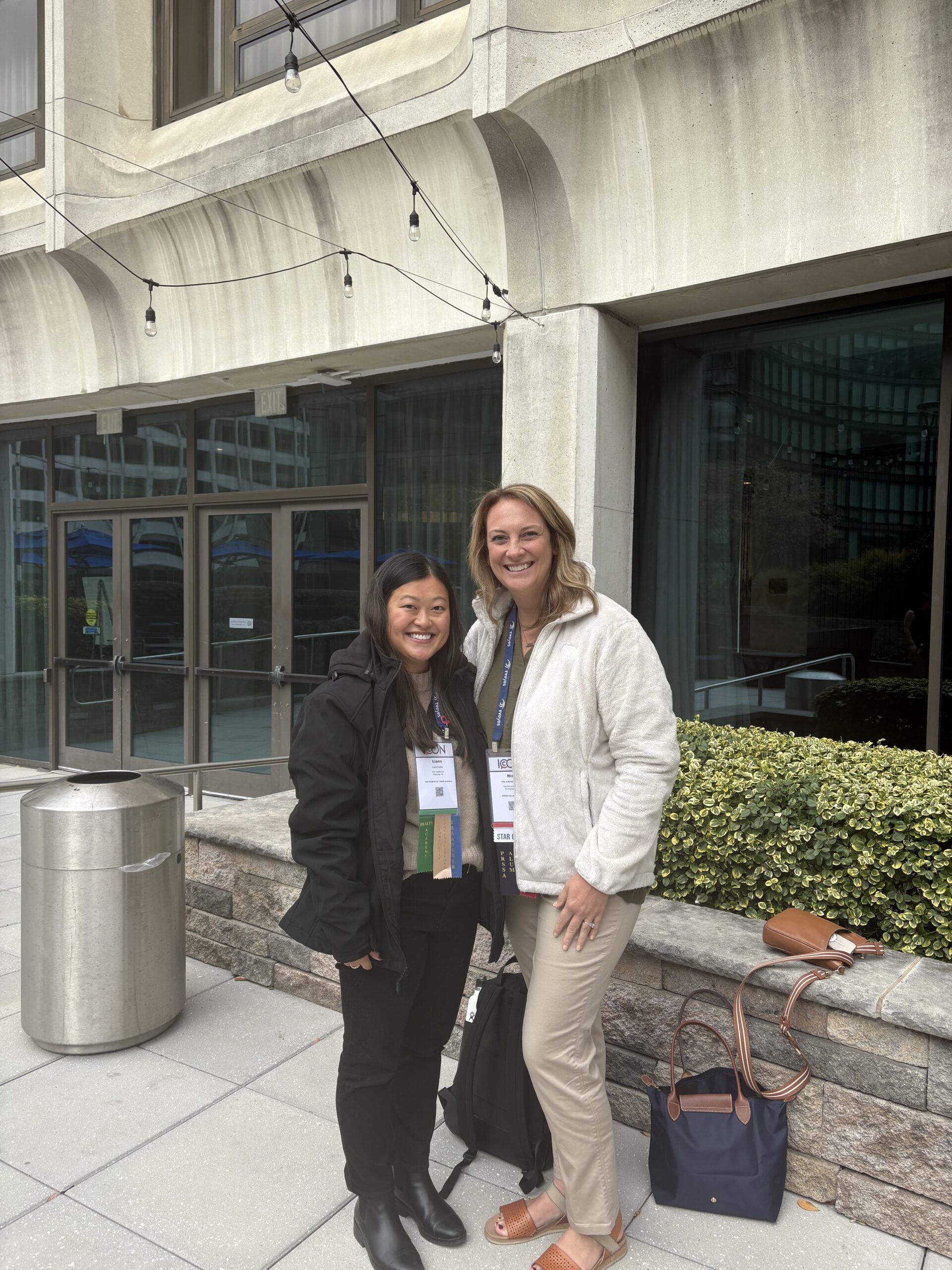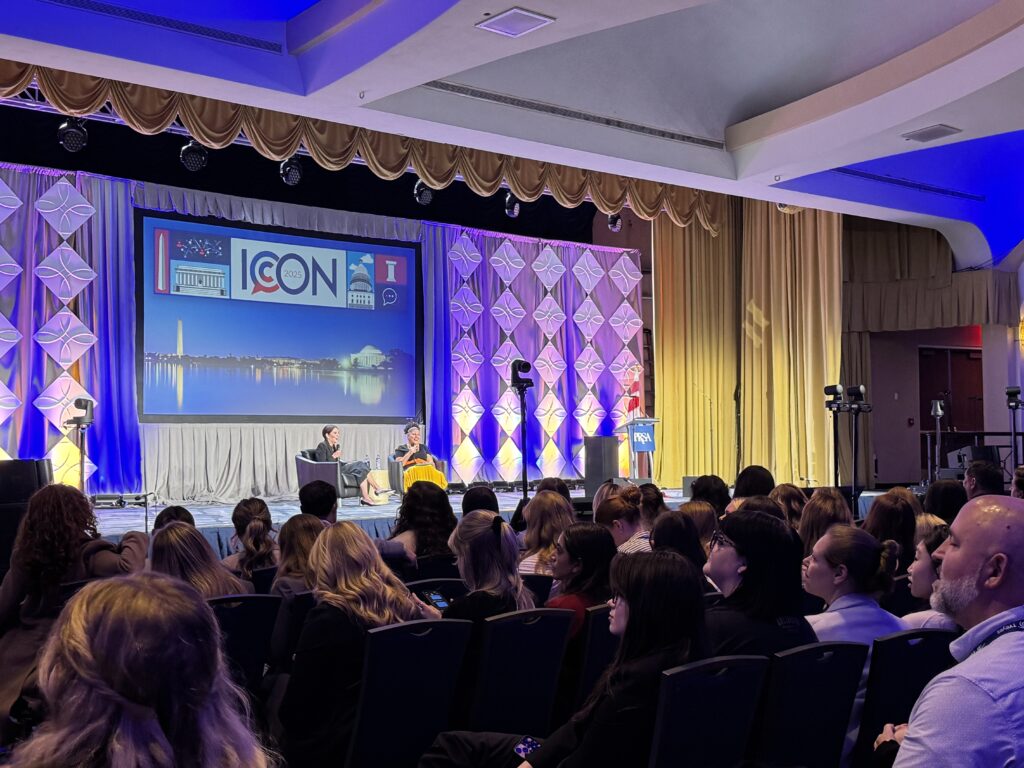What I Learned at the 2025 Health Academy Conference and PRSA ICON — and Why It Matters for Communicators
By Liann Cates
Flying out of Nashville during a government shutdown felt strangely quiet, like travel stuck in mid-stride. But when I landed in Washington, D.C., that stillness faded the moment I spotted fellow communicators heading to the 2025 Health Academy Conference and PRSA ICON 2025. As a representative of PRSA Nashville chapter, I arrived energized and ready to learn. I hoped to connect and gather ideas that could elevate our chapter and my work with the HCA Healthcare Change Management and Communications Team, and ultimately benefit the patients and colleagues we support. What followed was a series of conversations that reshaped how I think about trust, artificial intelligence (AI), storytelling and the future of healthcare communications.
Health Academy Highlights
The Health Academy Conference — soon to become PRSA Health and Life Sciences — is a two-day, healthcare-focused track held before ICON. This year’s focus on trust and transparency included sessions on patient and executive storytelling, digital channels and media relations in complex health environments. A keynote from Uché Blackstock, MD, addressed gaps in maternal health and community health equity. As someone supporting internal and external communications at HCA Healthcare, these conversations reinforced how our storytelling connects patient voice, colleague engagement and measurable outcomes.

A Keynote That Set the Tone
That focus on connection carried directly into ICON, where the opening keynote reminded us of something both simple and profound: the best communication begins with humanity.

Award-winning actress, producer and author Lauren Graham delivered a keynote I had anticipated all week. She reminded us that great storytelling begins with connection and encouraged us to embrace imperfect drafts and notice everyday moments. Her message resonated deeply with my working healthcare communications, where patient stories shape so much of our work. She closed with a fun nod to Gilmore Girls Season 2, which delighted the fans in the room, including me.
Culture, Innovation and the “Why?”
From there, the conversation shifted to innovation — not as a buzzword, but as a responsibility. One session in particular reframed how I think about AI, risk and organizational culture.
A standout session on the future of AI, led by Kevin Crowsyn, highlighted how quickly the landscape is shifting. He pointed to emerging examples including humanoid robot NEO, Salesforce’s Agentforce, Albania’s AI procurement minister and more than 83 members of Congress now using AI assistants. His message was clear: change agents must provide step-by-step clarity to reduce risk and protect continuity. He outlined key threats to innovation — toxicity, status quo, waste and short-sightedness — and urged communicators to view innovation as a core performance responsibility.
Fluent in AI (or Getting There)
AI dominated the conference, and with it came a clear message: communicators must develop fluency — not technical mastery, but enough understanding to lead with clarity in a rapidly evolving landscape.

Elizabeth Edwards emphasized the importance of learning to ”speak the language of AI.” Alexandra Merceron noted that 70 percent of Google searches now end in zero clicks, emphasizing how search behavior has shifted. Dave Burnett explained how AI shapes informational, navigational, commercial and transactional searches and why SEO now plays a central role.
My biggest takeaway: use AI to analyze my own communication patterns so I can communicate with greater clarity and intent.
Transparency, Media and Respectful Discourse
As the conference moved into conversations about media, the throughline became unmistakable: whether we’re talking about AI, journalism or public trust, audiences expect more transparency than ever before.
PRSA 2025 Chair Ray Day, APR, led one of the most memorable sessions, bringing together voices from national media and politics. MSNBC anchor Ali Vitali emphasized that audiences want behind-the-scenes transparency. Robyn Patterson, former White House spokesperson for President Biden, reminded us that each outlet speaks to a different audience. Zac Moffatt encouraged communicators to embrace risk. Leigh Ann Caldwell highlighted the equal value of traditional and emerging media.

Brendan Buck offered the line that stayed with me: “Anyone who can amplify your message is an influencer.”
Looking Ahead
Leaving the Hill, I felt grounded and energized. Health Academy clarified the direction of healthcare communications, while ICON reinforced why connection, storytelling and innovation remain central to our work.

From trust and connection to innovation and AI fluency, the sessions challenged me to rethink how we as communicators tell stories, engage audiences and drive results. Representing PRSA Nashville was an honor, and I’m excited to carry these insights into the year ahead.

